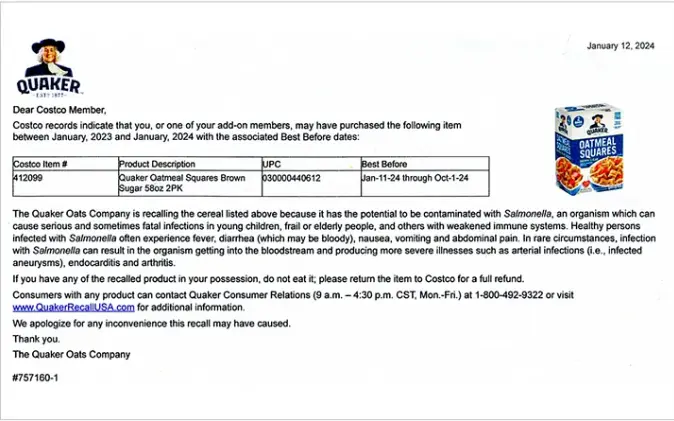Sandbox
Enhancing Track and Trace with Barcode-to-Blockchain Technology for FSMA 204 Compliance
Food safety concerns such as Salmonella contamination or carcinogenic meats frequently make headlines, leading to recalls by food manufacturers. In 2023 alone, FSIS reported 62 recalls of meat and poultry products, highlighting the urgency of the issue. Similarly, the FDA’s recall website indicates near-daily recalls, emphasizing the pervasive nature of the problem.
However, staying informed about product recalls isn’t always easy. Unless individuals actively monitor websites, subscribe to newsletters, or follow the news closely, they may remain unaware of recalls affecting their purchases.
Barcodes, often overlooked, play a crucial role in the FSMA 204 compliance efforts. This regulation mandates the establishment of traceability recordkeeping for specific foods, aiming to enhance the speed and efficiency of identifying and removing potentially contaminated products from the market. By reducing foodborne illnesses and related fatalities, this initiative seeks to safeguard public health.
FSMA 204 stated that entities managing Food Traceability Lists (FTL) must promptly submit information to the FDA within 24 hours.

Companies like Costco have already begun implementing solutions that leverage product barcodes to notify customers of recalls. Utilizing automated calls, customers are alerted as early as one day of a recall, empowering them to avoid consuming potentially hazardous products.
While enhanced barcodes, such as GS1–128, offer more comprehensive data, integrating blockchain technology can actually add a new dimension of efficiency with true notoriety. By leveraging blockchain’s self-propagating data and automating processes with smart contracts, companies can transmit vital information to authorities much faster, potentially within seconds rather than hours.
At GearChain, we aim to offer barcode-to-blockchain technology and an ecosystem that enables developers to integrate traceability solutions into their operations seamlessly. Our platform can encompass Key Data Elements (KDEs) linked to Critical Tracking Events (CTEs), including product descriptions, UPCs, lot or batch numbers, packing and shipping timestamps, recipient and source details, among others. By hashing this information into the blockchain, GearChain ensures tamper-resistant recordkeeping and swift data retrieval.
It’s essential to note that the compliance deadline for FSMA 204 is fast approaching on January 20, 2026. This regulation represents a pivotal step towards enhancing food safety protocols, facilitating rapid responses to potential hazards, and fortifying the integrity of the food supply chain.

